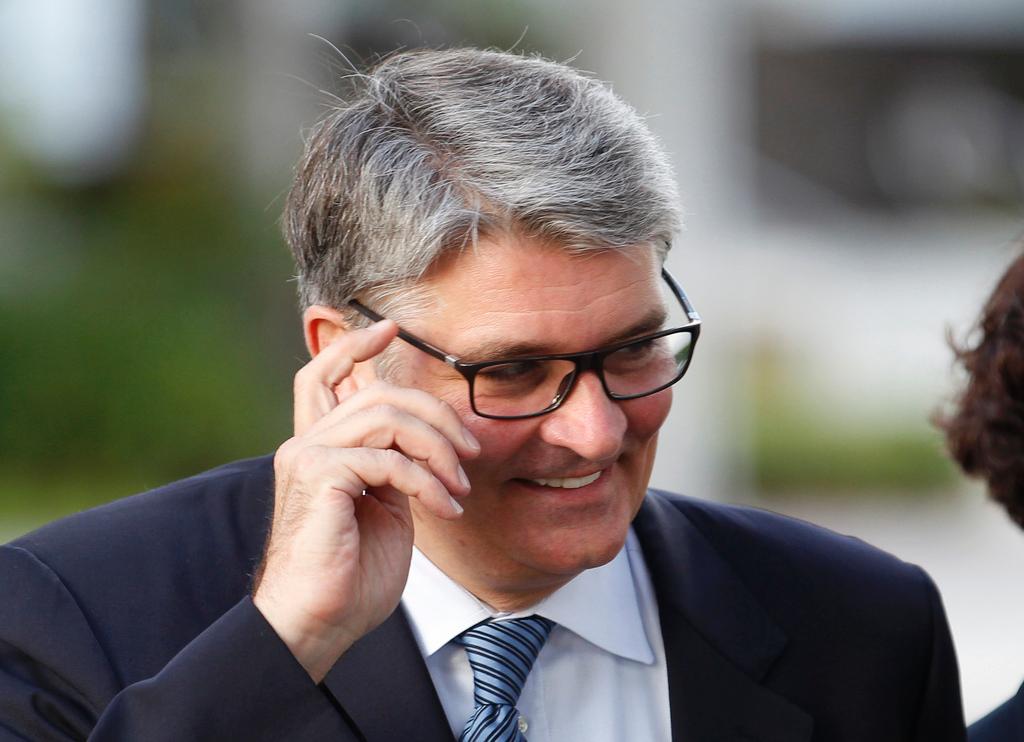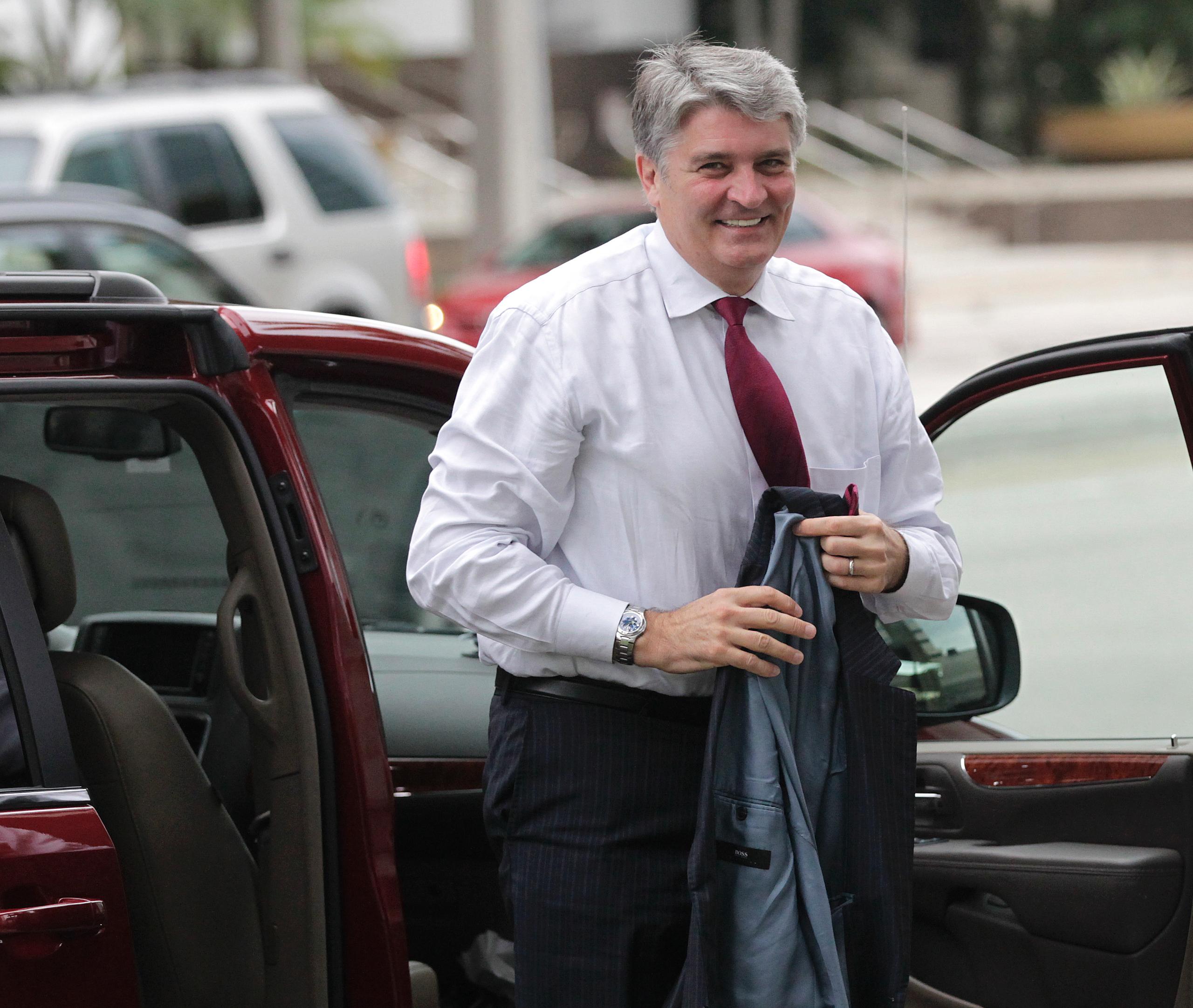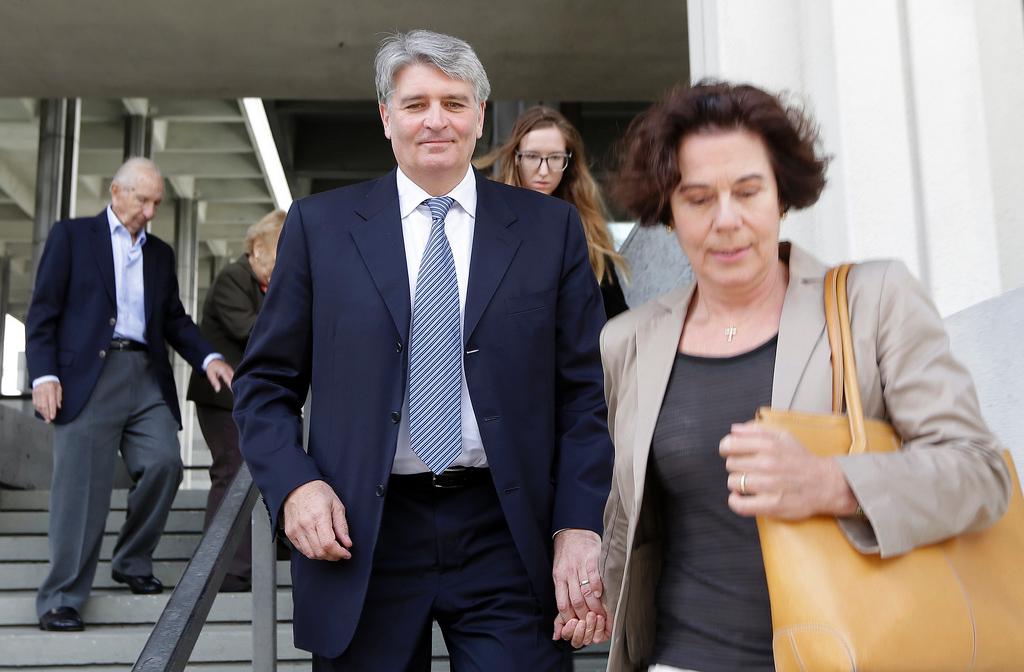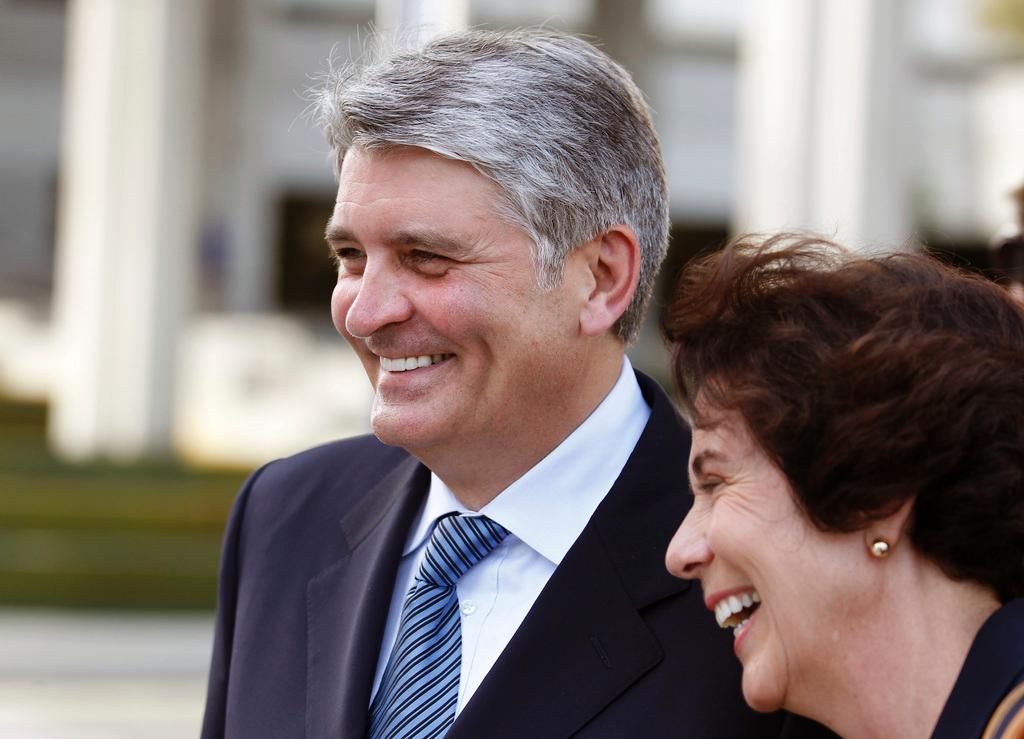‘They tried to wear me down,’ says Weil of DoJ

Back in Switzerland after winning his tax evasion case in the US, ex-UBS banker Raoul Weil says the trial was extremely stressful – and that he was surprised at how quickly the verdict came.
In a lengthy interview with the Neue Zürcher Zeitung’s Sunday newspaperExternal link, Weil shared the details of his arrest, his trial and of the months leading up to it.
“They tried to wear me down. The prosecution sent us 4.5 million individual pages in no particular order,” said Weil, noting that anybody would need ten months of house arrest – as he had been sentenced to – to cope with such mountains of paperwork. Weil had been accused of running a tax evasion racket while working for UBS.
Asked why he had agreed to go on trial rather than making a deal with the US Department of Justice (DoJ) – as other bankers had done – Weil told the newspaper, “I was confident that I had nothing to reproach myself for, and that it would not be easy to criminalise me.” He pointed out that he already had two investigation behind him: one conducted by the UBS board of directors, and a second by the Swiss Federal Banking Commission. Neither had yielded anything against Weil.
During his trial in Florida, Weil said that he and his defence team had had the feeling that they would win the case – which lasted for three weeks and ended on November 3. Jury deliberations after such a long trial can easily last three days, but in Weil’s case, the “not-guilty” verdict came after just an hour.
‘Emotional campaign’
“The prosecution led an emotional campaign. They wanted to prove that everybody at UBS knew about the misconduct of every individual financial advisor – embellished with cowboy stories. What was decisive was our proof that not everything that the prosecution termed illegal was illegal,” said Weil.
Asked by the NZZ what he meant, exactly, Weil said, “The US has an agreement with other countries, the so-called qualified intermediary agreement, which expressly allows managing undeclared assets in countries with banking secrecy. Only holding American securities is prohibited in these cases.”
Although UBS has admitted wrongdoing in connection with helping wealthy Americans to evade taxes, Weil said he was not a part of activities such as setting up structures for individuals to hide their money.
“In 2000, when such services were being provided for Americans, I wasn’t in charge of that area; I was the head of the bank’s European business,” Weil said. “My defence team managed to cleanly demonstrate the differences between allowed and not allowed.”
Weil added that the DoJ’s allegations were based on the testimony of four financial advisors, their boss and Martin Liechti, who was then the head of UBS’s American offshore business, noting that the DoJ had taken everything they said in 2008 at face value.
On a personal note, Weil told the newspaper that he was especially looking forward to the reunion with his dog.
“When knew I wouldn’t be able to travel as much as before, we got a dog. That was six years ago. Our terrier is exactly as old as my case.”

In compliance with the JTI standards
More: SWI swissinfo.ch certified by the Journalism Trust Initiative



You can find an overview of ongoing debates with our journalists here. Please join us!
If you want to start a conversation about a topic raised in this article or want to report factual errors, email us at english@swissinfo.ch.